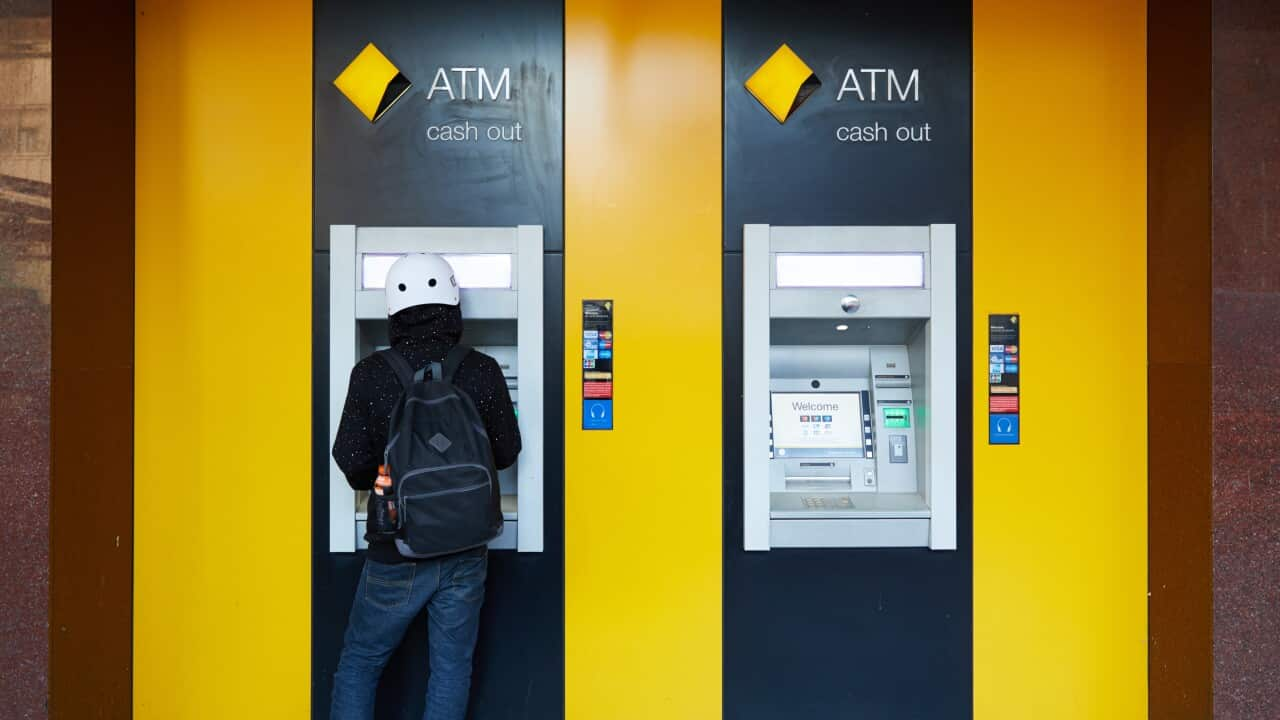Key Points
- Banks have recorded a rise in financial abuse cases over the last three years.
- Financial abuse is a tactic often associated with family violence and can include withholding money from someone.
- Advocates are calling for more in-language resources and better education on healthy money relationships.
This article contains references to domestic violence and abuse.
Financial abuse can take many forms, with new research revealing younger people, Indigenous Australians and new migrants are more likely to be affected.
Such abuse - often a tactic in cases of family violence - involves controlling a vulnerable person's access to bank accounts, cash, assets and other financial information.
The Commonwealth Bank says its latest survey of 10,000 Australians who have directly or indirectly experienced financial abuse has revealed that minority groups are at higher risk.
"It can happen to anyone no matter what their age, their cultural or socio-economic background is," said Caroline Wall, head of customer vulnerability at Commonwealth Bank.
Wall added that increased risk factors include age, disability, and migrant or First Nations status.
The report found that, in the three years since the bank launched a program to help , case numbers have increased, with two in five Australians (42 per cent) being impacted directly or indirectly.
Who is most at risk of financial abuse?
The likelihood of financial abuse was almost four times greater for Aboriginal or Torres Strait Islanders than non-Indigenous people (59 per cent versus 15 per cent).
People with a disability were twice as likely to have experienced financial abuse by a partner than Australians without a disability (37 per cent versus 17 per cent).
People with limited English, especially new migrants, are also at increased risk of financial abuse.
Nearly a third of gen Zers and millennials reported experiencing financial abuse. Older people and those from LGBTIQ+ communities are also at risk.
Rebecca Glen, the founder and CEO of the Centre for Women’s Economic Safety, said the more marginalised any individual is in Australian society, the more likely they are to experience this type of abuse.
"That could be because of their visa status. It could be because they're not familiar with Australian institutions. It could be because of their gender or sexuality or their ability. The more marginalised a person is, the more vulnerable they become because our systems are not designed for them.
"The systems are designed for able-bodied English-speaking people who understand the way Australian society works. So there's a very big job for us to do to assist people to understand systems so that they are not made as vulnerable as they are currently."
What does financial abuse look like?
Glen said financial abuse starves people of economic resources, putting them in vulnerable situations.
"We also see a lot of coerced debt where someone is being pressured and either fearful for their life or the consequences of saying no will have to sign for a loan that they don't want or that they don't benefit from," she said.
"We see that sort of that sabotage where someone will actually ruin another person's credit rating by opening credit cards in their name without their consent or knowledge. And so it can be a long time before people even realise sometimes that they've been subjected to this form of abuse."
Other types of abuse include sabotaging study and/or employment opportunities, not contributing to household bills and manipulating finances to avoid or reduce child support payments.
Glen says banking products and key information about essential services and how they work need to be available in many more languages.
She says there also needs to be better education about relationships and money from an early age.
"We need to be having a bigger conversation about healthy money relationships," she said.
"What can happen with financial and economic abuse is that it can hide under the fact that in some cultures, it's not something you talk about, or that there are sort of gendered norms about who should manage money."
LISTEN TO

SBS On the Money: Top scams and how to spot them
SBS News
11/04/202314:01
Lody Stewart is a financial counsellor with the National Debt Helpline, which also provides free support to people and access to an interpreting service.
Stewart says it's important to make it clear that financial abuse can occur in a range of situations, not just in family or partner settings.
"It doesn't always have to be part of what people call an intimate partner relationship, it could be from a relative, it could be from a carer. It could be from a person that you share a house with," she said.
"Gambling and addiction - there's an inter-relatedness between those and financial abuse. It's also a form of coercive control."
How are banks responding?
Banks have become more aware of the issue of financial abuse, and many now provide specialised support services.
Westpac, for example, has a partnership with Uniting Care where customers can be referred for additional support.
The National Australia Bank recently announced it would act against financial abuse by including it in customer terms and conditions.
The Commonwealth Bank also has a free service available to individuals worried about their finances because of domestic violence or coercive control.
Wall says the service can connect people with an interpreter and it's free for anyone, even customers from other banks.
Earlier this week, the bank announced it would be making grants of up to $200,000 available to partnering social enterprises that are designing projects to support those who have experienced financial abuse as part of its new Next Chapter Innovation program.
If you or someone you know is impacted by family and domestic violence, call 1800RESPECT on 1800 737 732 or visit . In an emergency, call 000.
The CommBank Next Chapter support line can be contacted on 1800 222 387.













